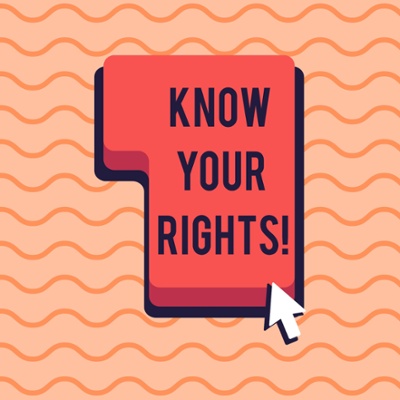DATA RIGHTS ATTORNEYS
Protecting Your Company's
Data Rights
RESTRICTIONS ON TECHNICAL DATA
Contractors must follow procedural steps to protect their intellectual property rights in technical data and computer software when participating in Government contracts. This includes asserting restrictions, marking with authorized legends, and justifying the marking. Some steps occur before delivery, while others occur after. The process of asserting restrictions is discussed in detail in the article "Contractor's Assertions of Rights Restrictions in Government Contracts". The article "Non-Conforming Restriction Markings Can Result in Unlimited Rights for the Government Under DOD Contracts" further emphasizes the importance of marking and delivering with authorized legends. For more information on justifying the marking, refer to the article "Contractors Responsible for Burden of Proof on Asserted Rights Restrictions in Technical Data and Computer Software Delivered under Government Contracts".
To ensure compliance, contractors should determine if the TD/CS needs to be delivered and mark it accordingly before submitting it to the Government. Employee training is also crucial in this regard, especially in sectors dealing with healthcare and financial services, where data privacy laws are particularly stringent.

Technical Data and Computer Software
Our attorneys will help you address the necessity of delivering TD/CS under the Government contract. The assertion, marking, and justification requirements under the DFARS only apply to TD/CS that are contractually obligated to be delivered to the Government. TD/CS that may be voluntarily shared by the contractor, not required to be delivered as part of the contract performance, are exempt from these procedural steps and specific marking requirements stated in DFARS.
These informal exchanges of TD/CS happen more often than expected. Contract engineers collaborating with Government engineers may share valuable TD/CS, even if not required by the contract. Their focus is on efficiently completing projects rather than contract terms. However, it's important to note that unmarked TD/CS shared voluntarily may result in the contractor losing their rights to restrict the Government's rights, which could be problematic if data breaches, cybersecurity concerns, or regulatory challenges arise.

Data Delivery Requirements
The Government sets data delivery requirements as part of the solicitation and contract. The Contract Data Requirements List (CDRL - DD Form 1423) is commonly used to specify what data needs to be delivered. The contractor must decide which data to mark with restrictions before delivery. If no restrictions are asserted, the data is delivered with unlimited rights. Contractors who refuse to deliver required data may face contract termination. The Government may evaluate data rights restrictions in the selection process.
Under DFARS, TD/CS required to be delivered under the contract should be marked as Limited Rights (for TD), Restricted Rights (for CS), Government Purpose Rights (for TD and CS), or Specifically Negotiated License Rights (for TD and CS). TD/CS not contractually required to be delivered can be marked in any manner chosen by the contractor. The Government may also require delivery of additional TD/CS after the contract award. Any TD/CS without a restrictive marking is considered unlimited rights for the Government. Fixing inadvertent omission of marking can be difficult and additional conditions must be met by the contractor.
Assessments should be conducted regularly to ensure that all data rights markings are accurate and compliant with government regulations.
If you intend to submit a proposal in response to an RFP or have a government contract where TD or CS is required to be delivered, contact us at Whitcomb Selinsky, PC, the leading Law Firm in Colorado. Our Government Contracting attorneys will review your contract or proposal to ensure your TD/CS rights are protected.

Frequently Asked Data Rights Questions.
-
Why is it so critical to understand the data rights rules and regulations?
Understanding the rules and regulations surrounding data security in government contracting is crucial for various reasons. For contractors, it is not only about protecting data from competitors but also about staying competitive in the market. Data protection laws play a significant role in this context, as they outline the legal framework for safeguarding sensitive information against unauthorized access and misuse. The government often seeks broad rights in data to promote fair competition when acquiring related items.
Over the years, standardized clauses such as the "rights in data-general" provision have become standard in federal contracts. These clauses, dating back to 1987, give the government significant control over technical data and computer software, granting them almost unlimited rights. Rather than granting rights outright to the contractor, these clauses usually impose restrictions, requiring the licensing of technology through a compulsory license.
Even seemingly small oversights, like agreeing to modify a commercial product without taking precautions or failing to include the necessary legend when submitting data to the government, can inadvertently lead to the government acquiring extensive rights to technical data and software. Therefore, contractors must have a thorough understanding of privacy laws, cybersecurity laws, and data rights regulations in government contracts to effectively protect their rights and interests. Ensuring regulatory compliance is key to avoiding costly mistakes and maintaining your competitive edge. -
What are the key challenges in data rights litigation?
Data rights litigation in government contracting presents several formidable challenges.
Contractors must navigate complex regulations governing technical data and software rights, including understanding the FAR "Rights In Data-General" Clause, which grants extensive rights to the federal government. Additionally, contractors face presumptions regarding the origin of data developed with government funds and must maintain records to justify claims of private development. Proper data handling, including using the correct restrictive legends, is crucial to avoid unintentionally granting broad rights to the government. Moreover, contractors must assess and manage risks, including potential liabilities under the False Claims Act, by ensuring appropriate cybersecurity compliance, privacy compliance, and insurance coverage.
Partnering with a data rights lawyer and cybersecurity attorneys can help contractors address these challenges effectively and safeguard their interests when taking on government contracts.
-
What are the consequences of violating data rights in government contracting?
Violating data rights in government contracting can have severe consequences, including facing legal action. The government, as a third-party beneficiary, can pursue damages directly from the violator for any breaches of data rights agreements.
Moreover, the violator may be obligated to indemnify and hold the government, its agents, and employees harmless from all claims or liabilities, encompassing attorney fees, court expenses, and other costs arising from the misuse or unauthorized handling of data, such as modification, reproduction, release, performance, display, or disclosure.
Additionally, breach of data rights can result in contract disputes falling under the Contract Disputes Act, which can be resolved through adjudication in the Court of Federal Claims.
Lastly, violating data rights can also lead to potential criminal repercussions under the Trade Secrets Act, which prohibits the disclosure of trade secrets and confidential data. -
What are the data rights of private companies in government contracting?
Private companies in government contracting retain certain data rights. The Department of Defense (DOD) has policies in place to restrict the government's control over computer software developed privately. The government only acquires rights to use, duplicate, and disclose computer software developed at private expense that are essential to meet its needs.
Within the Defense Federal Acquisition Regulation Supplement (DFARS), various government licenses are outlined for noncommercial technical data, including unlimited rights, government purpose rights, limited rights, and specially negotiated license rights. These licenses are integrated into contracts involving the delivery of such data to the government.
Additionally, the government's rights are constrained when it comes to technical data connected to items, components, or processes developed solely at private expense. In cases where limited rights data is used for emergency maintenance, the recipient must promptly destroy the data and notify the contractor of its destruction after the repair or overhaul is completed.
In instances where data is initially created under a Government contract, contractors are allowed to claim a copyright in scientific or technical articles based on that data for publication in various forums. However, obtaining a copyright for other data produced under a Government contract necessitates explicit written approval from the contracting officer.
Furthermore, when a contractor secures a copyright for such data, they must provide the Government with a paid-up, nonexclusive, and irrevocable license. For data not originating from Government contract work, contractors must seek approval before incorporating copyrighted data into deliverables, ensuring that the Government is granted a paid-up, worldwide, nonexclusive, and irrevocable license. -
What are the data rights of intellectual property?
In government contracts, "data rights" refer to the government's right to use technical data and computer software delivered by contractors. The specific rights are negotiated and outlined in the contract. There are different categories, such as "unlimited rights," where the government can freely use and share the data, or "government purpose rights," for limited use within government agencies.
Contractors must adhere to procedural steps outlined in regulations like the Defense Federal Acquisition Regulation Supplement (DFARS) to protect their intellectual property rights, ensure compliance with contractual obligations, and safeguard proprietary information. -
What is the difference between a patent attorney, a trademark lawyer, and an IP lawyer?
Patent attorney: Focuses on securing and enforcing patents, which grant exclusive rights to inventions for a limited time.
Trademark lawyer: Deals with trademarks and service marks that identify the source of goods and services.
IP lawyer: A broader term for an attorney with expertise in all aspects of intellectual property, including patents, trademarks, copyrights, and trade secrets. -
What are the types of intellectual property rights?
The main types of IP rights are:
- Patents: Grants exclusive rights to inventions for a limited time.
- Trademarks: Protect source identifiers for goods and services (e.g., logos, brand names).
- Copyrights: Protect original creative works like literary, artistic, and musical creations.
- Trade secrets: Confidential information that gives a business a competitive advantage.
Government contracts may involve any of these IP types, and data itself can be considered a trade secret in some cases.
-
What are the consequences of not understanding data rights in government contracting?
Failure to grasp the intricacies of data rights in government contracting can have far-reaching implications. These rights serve as a vital safeguard for contractors, ensuring that their investments in research and development are shielded. Without adequate protection, contractors risk losing out on potential returns from licensing fees or other forms of compensation for the utilization of their technology.
Neglecting to apply the necessary restrictive legend when furnishing data to the government can lead to the inadvertent granting of expansive rights to the government over the relevant technical data and/or computer software. This inadvertent oversight can result in the unintended consequence of bestowing extensive rights upon the government.
Moreover, a contractor's failure to correctly identify data deemed proprietary could nullify its ability to assert protection over such data, even if the contractor possesses the requisite knowledge and means to do so.
Furthermore, should a contractor neglect to secure data rights in its contractual agreements with the government for the delivery of source code, omit proprietary markings or confidential labels on source code, manuals, or design materials, and provide unrestricted access to the source code without indicating any data rights or proprietary content, the contractor may effectively relinquish its trade secret in the source code.
Lastly, when the government funds the development of an item, component, process, or software through a government contract or subcontract, there exists a substantial risk that the government will lay claim to extensive rights over the related technical data and/or computer software. This is due to the fact that government allocations towards overhead do not confer rights to technical data. Even if indirect reimbursements for independent research and development costs are sourced from government contracts, these costs are still considered private expenses concerning data rights clauses. Any form of government reimbursement, whether direct or indirect, for the development expenses of an item, component, or process signifies that the development was not privately funded. -
What are the different types of data rights in government contracting?
In government contracting, various types of data rights are governed by the Federal Acquisition Regulation (FAR) and the Defense Federal Acquisition Regulation Supplement (DFARS).
Under these regulations, the government typically holds unlimited rights to technical data and computer software produced under a contract. This encompasses data essential for installation, operation, maintenance, or training, as well as any modifications or updates, and data or software where the government previously obtained unlimited rights under a different contract or through a specific license.
Conversely, the government's rights are limited concerning technical data not created under a contract, related to items developed solely at private expense, and identified with the prescribed legend.
For data from the Small Business Innovative Research (SBIR) program, the government is generally restricted from sharing it with anyone other than its support service contractors, unless the contractor marks it with the specified legend to prevent disclosure.
In the case of the Department of Defense (DOD), the DFARS outlines four government licenses for noncommercial technical data: unlimited rights, government purpose rights, limited rights, and specially negotiated license rights.
Moreover, costs associated with independent research and development, reimbursed partially through indirect cost allocations to government contracts, are considered private expenses in terms of data rights.
Lastly, both the FAR and DFARS include provisions concerning the government's procurement of software, including the government's policy of acquiring commercial software pursuant to the software license customarily provided to the public. -
What are the responsibilities of government contractors regarding data rights?
Government contractors have certain obligations concerning data rights. They are mandated to adhere to the "rights in data-general" clause found in federal contracts, through which the federal government is granted extensive rights in technical data and computer software. In cases where a contract necessitates the provision of "limited rights" data, contractors have the option to accompany the data with a "limited rights notice," specifying the conditions under which the government can share the data with third parties.
In instances where the contractor acts as the data repository manager, they are responsible for establishing and upholding procedures that safeguard technical data from unauthorized disclosure, manage the release of technical data to third parties, and ensure the data's accuracy when received from government contractors or subcontractors.
The Department of Defense has outlined regulations that define four government licenses for noncommercial technical data: unlimited rights, government purpose rights, limited rights, and specifically negotiated license rights. Contractors are required to grant the government one of these licenses, while retaining all rights not explicitly granted to the government.
Moreover, if copyrighted data is integrated into the technical data to be furnished under the contract, the contractor must secure the appropriate license rights for the government and attach a statement detailing the licenses obtained on behalf of the government to the data transmittal document.
Lastly, contractors must adhere to the stipulations of 41 USCS § 2302, which mandates that any contract for property or services entered into by an executive agency must encompass relevant provisions concerning technical data. -
What are the rights of the government in data obtained through contracting?
The government's rights in data acquired through contracting are regulated by the Defense Federal Acquisition Regulation Supplement (DFARS) 227.7103, outlining four key government licenses for noncommercial technical data: unlimited rights, government purpose rights, limited rights, and specifically negotiated license rights.
Unlimited rights are bestowed upon data developed solely with government funds, enabling the government to utilize, adapt, and disclose the data without constraints, and even extend rights to third parties for its usage.
Government purpose rights come into play when data or software are created with a combination of private and Department of Defense (DOD) funding. Under this provision, the government can manipulate, employ, or duplicate the software within its realm, and share or unveil the data with third parties under a non-disclosure agreement.
Limited rights are granted when data is created using solely private funds, affording the contractor the ability to limit the government's liberty to share or unveil the data to external entities.
Specifically negotiated license rights are crafted through dialogues between the government and the contractor.
Furthermore, the government is entitled to rights in data encompassing aspects of form, fit, and function.
In non-commercial item contracts, the government is privileged to attain all intellectual property rights to the technical data and computer software developed with government backing.
For commercial item contracts, the government's entitlement is restricted to the intellectual property rights typically available to the public as per a contractor's standard commercial licenses.
The government's rights in technical data are also delineated in 41 USCS § 2302, which articulates that the government cannot mandate a developer to provide technical data related to design as a prerequisite for government procurement. -
What is not a type of intellectual property?
Ideas, facts, and natural laws themselves are not protected by IP. However, the expression of an idea (e.g., a written invention disclosure) or the way facts are presented (e.g., a unique database) could be.
-
Which types of data are protected by law?
Several types of data are protected by law, including personally identifiable information (PII), financial data, health records, proprietary business information, and trade secrets. Various regulations and statutes, such as the General Data Protection Regulation (GDPR), Health Insurance Portability and Accountability Act (HIPAA), and California Consumer Privacy Act (CCPA), establish legal frameworks to safeguard these types of data and ensure privacy, confidentiality, and security.
Meet Your Data Rights Law Legal Team

Brandon Selinsky
Chief Operating Officer
Brandon counsels business clients on trademark prosecution and defense in front of the USPTO (U.S. Patent and Trademark Office) and TTAB. Most recently, he fended off a major university’s attack on an independent artist’s trademark. He also represents service-disabled veteran-owned small businesses (SDVOSB) in government procurement, including bid protests, contract disputes, and appellate advocacy.
Get Started in
3 EASY STEPS
 Discuss Your Claim
Discuss Your Claim  Explore Your Options
Explore Your Options  We Will Advocate For You
We Will Advocate For YouGet Started in
3 EASY STEPS



Request Your Free Consultation Today
Or Call (866) 433-4116
Trademark Law Resources
Colorado
300 Union Boulevard
Suite 200
Lakewood, CO 80228
(303) 534-1958 (local)
© 2026 · All Rights Reserved · Whitcomb, Selinsky, PC




.png?width=150&height=97&name=Veterans%20Advocacy_Logo(Eagle).png)
